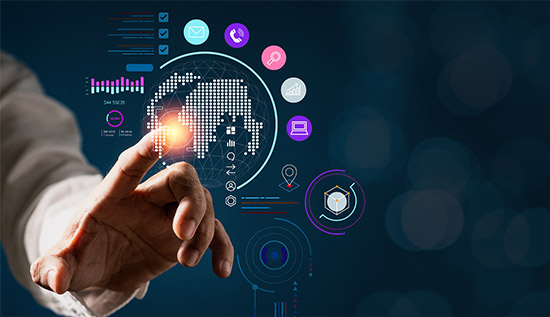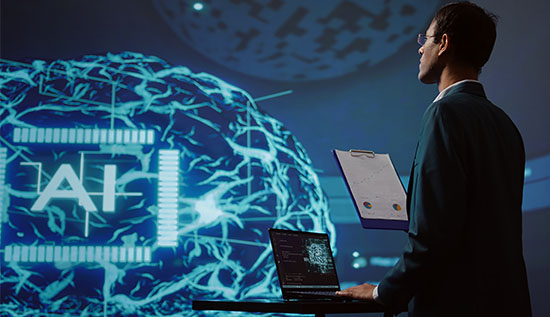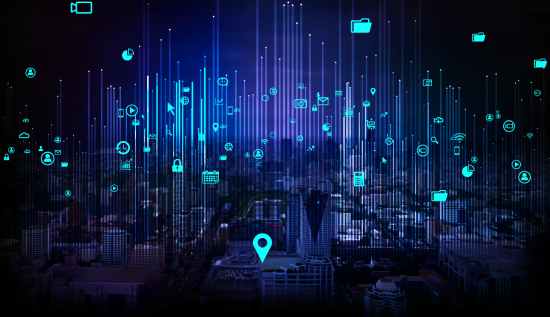How Emerging Technologies Are Changing Our Future?

From AI to quantum computing, explore the 8 types of emerging technologies driving innovation and shaping tomorrow’s world.
The modern world moves quickly, emerging technologies are reshaping industries, economies and our daily lives. These innovations, which range from blockchain to artificial intelligence, have an impact on how we work, communicate and engage with others.
Understanding what are emerging technologies and their impact on our future is crucial for staying ahead in this digital era. As new emerging technologies continue to evolve, they create both opportunities and challenges, demanding businesses and individuals to adapt to the changing landscape.
This article discusses a number of new technology facets, including their categorization and practical applications that demonstrate their transformational potential.
Exploring Emerging Technologies.
What Are Emerging Technologies?
Innovations that have a major influence on industries and societies are referred to be technological developments. Although they are frequently in their infancy, they have enormous potential for broad acceptance. Typically, these technologies are related to disciplines such as biology, engineering and computer science also.
The adoption of these technologies determines the pace of innovation and economic growth worldwide. With continuous research and development, emerging technologies examples are increasing in number, improving efficiency in various sectors.
8 Types of Emerging Technologies
How many categories are there for new technology? There are eight main categories in general:
1. Artificial Intelligence (AI) and Machine Learning: AI enables data analysis, automation, and decision-making.
2. Cryptocurrency and Blockchain: Enables secure, decentralized online transactions.
3. Quantum Computing: Increases processing ability to address difficult problems faster.
4. The Internet of Things (IoT): Connecting intelligent devices to improve procedures.
5. 5G and Next-Gen Connectivity: Improves communication dependability and also internet speed.
6. Virtual and augmented reality (VR/AR) enhance user experiences in education and entertainment also.
7. Automation and robotics boost productivity in industries such as manufacturing and healthcare.
8. Biotechnology & Genetic Engineering: Revolutionizes medicine, agriculture and human health.
Every one of these areas is essential to changing a variety of sectors, including healthcare and finance also, while enhancing sustainability and productivity. Businesses adopting these new emerging technologies gain a competitive edge and drive innovation across sectors.
The Role of Emerging Technologies in Computer Science
The field of emerging technologies in computer science has seen significant breakthroughs. Some notable innovations include:
1. Quantum Computing: In contrast to conventional computers, quantum computers solve complicated problems in a matter of seconds by processing data at previously unheard-of rates. Scientists and tech titans such as Google and IBM are driving progress in quantum computing, bringing us closer to advances in medicine cryptography and artificial intelligence.
2. AI & Machine Learning: These technologies let computers to learn and adapt improving decision-making processes across a variety of industries. Chatbots and self learning systems are only two examples of how AI has changed how businesses operate and interact with their clients.
Example Use Cases:
- Healthcare: AI-driven algorithms detect diseases like cancer at an early stage with high accuracy. Robotics-assisted surgeries and AI-powered diagnostic tools are improving medical treatments.
- Finance: Transactions on blockchain are transparent and safe which lowers fraud. Tools for risk assessment powered by AI enhance banking security and investing choices.
How Emerging Technologies Are Changing Our Future
Enhancing Connectivity & Communication
5G networks and next-generation connectivity are transforming communication. These new emerging technologies provide ultra-fast internet speeds, enhancing business operations, remote work and digital transformation. A more linked digital world quicker cloud computing and smooth video conferencing are all made possible by 5G technology. Businesses who use this invention report increased productivity and teamwork.
Automating Industries with AI & Robotics
Automation technologies and AI-powered robots are transforming logistics, manufacturing and customer service, increasing operational efficiency and lowering costs. Additionally, to increase accuracy and efficiency robotics is being applied in space exploration agriculture and medicine.
Example Use Cases:
1. Smart Cities: IoT sensors improve traffic management and energy usage, enhancing urban infrastructure and lowering pollution levels.
2. Retail Industry: AI-powered chatbots personalize shopping experiences whereas automated checkout systems increase efficiency and minimize wait times.
Emerging Technologies Examples and Their Real-World Impact
Several emerging technologies examples illustrate how innovation is shaping the future:
- Self-Driving Cars: Autonomous vehicles made possible by AI and IoT reduce collisions and improve transit effectiveness also. To improve road safety and commuting convenience companies such as Tesla and Waymo are developing self-driving car technologies.
- Biotechnology Advancements: The CRISPR gene-editing technique is transforming medicine by curing hereditary problems. Scientists are looking into genetic tweaks to treat ailments and increase food security.
- Renewable Energy Innovations: Emerging green technologies like solar panels with AI-powered energy management systems are enhancing sustainable energy solutions, reducing carbon footprints globally.
The Challenges of Emerging Technologies
While developing technologies provide enormous benefits, they also present challenges:
- Security & Privacy Risks: As digital transformation progresses data breaches and cyber risks become more common. Protecting user data and also maintaining privacy are critical considerations.
- Job Displacement: Automation and AI-driven systems may replace traditional jobs requiring reskilling and upskilling of workers.
- Ethical & Legal Issues: The application of blockchain biotechnology with artificial intelligence raises concerns about prejudice fairness and government.
Resolving these issues is essential to guaranteeing the responsible application of new emerging technologies while maximizing their potential benefits.
Conclusion
As technology continues to evolve, understanding how emerging technologies are changing our future becomes essential. Whether in computer science healthcare or finance connectivity efficiency and also advancement is fueled by these advancements.
Businesses and individuals must adapt to these advancements to remain competitive in an ever changing world. By staying informed about emerging technologies examples and various uses, we can use them to help create a more sustainable and intelligent future.
The future of new technologies is infinite and as they evolve, they will revolutionize industries, improve quality of life and usher in an era of unprecedented creativity. Keeping up with these innovations guarantees that we take use of their benefits while conquering their hurdles.
More Articles
 14 Feb 2026
14 Feb 2026
KPIs Every Business Should Track Using Tech Solutions
Use smart KPI tracking tools and business KPIs tech solutions to measure growth, optimize operations, and stay competitive in today’s digital economy.
 13 Feb 2026
13 Feb 2026
Top 10 AI Tools Transforming Business Workflows in 2026
Top AI tools transforming business workflows in 2026 and workflow optimization examples for modern organizations.
 12 Feb 2026
12 Feb 2026
Predictive Analytics for CEOs: Tools & Strategies for Growth
Learn how leverage predictive analytics for CEOs to drive growth, improve forecasting, and strengthen strategic decision-making.
 12 Feb 2026
12 Feb 2026
Tech Event Coverage: CES 2026 & MWC 2026 Highlights
Tech Event Coverage: CES 2026 & MWC 2026 Highlights with top gadgets, AI breakthroughs, mobile trends, and major industry announcements.